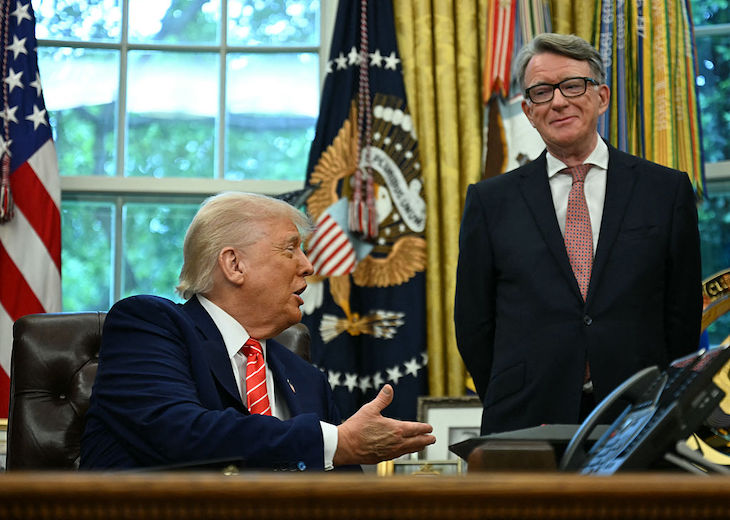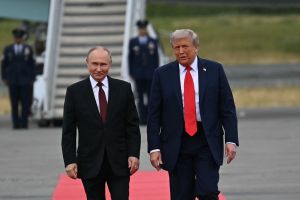Keir Starmer says it is a “fantastic, historic” day after signing a trade deal with the United States, but is the agreement really something to celebrate?
The government is no doubt cock-a-hoop to be the first country to get a trade deal with President Donald Trump over the line, and there are a few wins: tariffs will come down for cars, steel, and potentially for pharmaceuticals, exempting UK exporters from the worst of the tariffs imposed on the oddly-named “Liberation Day.” But while, despite the dire warnings of some, we won’t be seeing chlorinated chicken on sale at Tesco, nor will the NHS be sold off in the unlikely event that anyone wanted to buy it, this is a deal that might have unintended consequences for Starmer’s government – and for Britain.
Ten percent tariffs, announced last month, still apply to most UK goods entering the US. Conservative leader Kemi Badenoch says the UK has been “shafted.” If she’s talking about farmers, she might be right: things could be about to change radically in Britain. Beef farmers, in particular, might not like the coming changes.
As a result of this deal, the UK will allow a lot more American beef into the UK market – up to 13,000 metric tons of it. We may soon find that British consumers quite like cheap American food – and the government will come under huge pressure to throw the agricultural market wide open.
“The deal includes billions of dollars of increased market access for American exports, especially in agriculture, dramatically increasing access for American beef, ethanol, and virtually all of the products produced by our great farmers,” Trump boasted as he unveiled the deal in a bizarre White House press conference with Peter Mandelson.
For years, some of those on the left have been busy shouting that consumers need to be protected from “low-quality” American food. Campaigners have been determined that we can’t allow the market to be flooded with cut-price steaks and fillets that risk undermining British farming. We should keep our market completely closed, they insist.
So far that attitude has been surprisingly successful. Even after we left the EU, we kept its food barriers largely intact. Indeed, the Starmer government may well double down on that as part of its “reset” with the EU. But, as the success of discount retailers such as Lidl and Aldi has shown, British shoppers like a bargain – and they may be about to get one with imported American meat.
While it’s true that British farmers will be able to sell their beef into the American market, competition is intense and they might struggle – in a way that US farmers flogging their produce over here probably won’t.
When customers get a taste of cheaper American food, they’re sure to like it. Very quickly, the government could come under pressure to throw the agricultural market wide open. It will start with cheap American beef – but it is unlikely to end there. Starmer is right to say that it is an “historic” day. But he might be in for a surprise as to how history will reflect on this agreement.

























